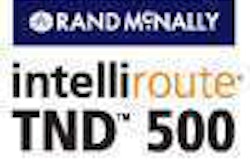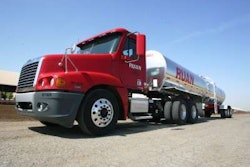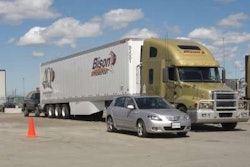Members of Congress today, Sept. 30, were shown an all-electric commercial truck from Navistar Inc. built with the help of a $39 million U.S. Department of Energy grant announced by President Obama in August. The high-technology trucks are designed for maximum efficiency in urban environments.
Navistar says it intends to build 400 all-electric delivery trucks in 2010 at its facility in Elkhart County, Ind., and expects within a few years to be producing several thousand vehicles annually as the market grows. “At a time when the economy is struggling, supporting breakthrough technologies like Navistar’s all-electric truck will create jobs for our state and help free us from our dependency on energy imports,” says U.S. Sen. Evan Bayh (D-Ind.).
The U.S. House of Representatives recently passed legislation allowing for a program of research, development and commercial application of clean vehicle technologies at DOE (H.R. 3246, Advanced Vehicle Technology Act of 2009). The bill now moves to the Senate for consideration.
Navistar says its collaboration with DOE demonstrates the importance of business and government working together to make energy-efficient vehicles a reality, and the continued need for research and development of advanced commercial vehicle technologies.
“The all-electric commercial truck is a concrete example of advanced technology that will be swiftly brought to market with government incentives, just like diesel-hybrid trucks and school buses,” says Greg Elliott, senior vice president of Warrenville, Ill.-based Navistar. “We must continue to invest together for the next generation of advanced vehicles with innovative aerodynamic design and greater hybrid and electric market penetration across the nation.”
Navistar says the new zero-tailpipe-emissions all-electric commercial truck — the latest of its green vehicle advancements, which also include diesel hybrids with the International DuraStar truck and the IC Bus CE Series plug-in hybrid school bus — primarily would be used by fleets in congested, urban light-duty applications where stop-and-go driving otherwise would consume a large amount of fuel.









